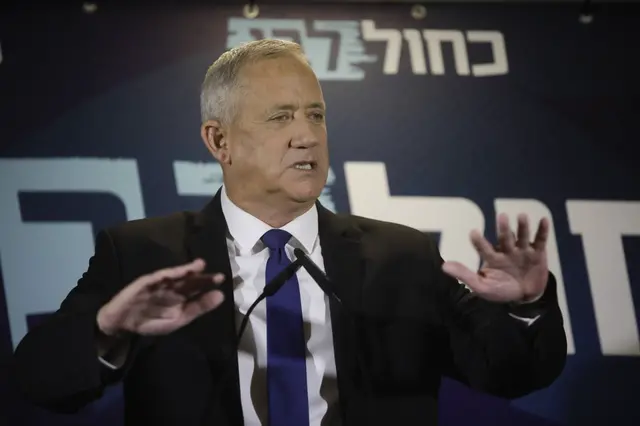By APD writer Lu Jiafei
After his epic exchange of chest-thumping alpha-male rhetoric with the Democratic People’s Republic of Korea (DPRK) early this month, U.S. President Donald Trump’s initial response to the DPRK’s latest launch of missile over Japan was less colorful and more measured.
U.S. President Donald Trump
It gave me hope for a time that seven months into his nascent yet chaotic presidency, the political neophyte had probably become somehow disciplined when it came to serious issues like the Korean Peninsula nuclear crisis.
The hope was soon dashed within a day when Trump again flatly contradicted his administration’s tenuously coordinated response to the DPRK, raising serious questions about whether he and others within his administration were on the same page on the DPRK nuclear issue.
In an initial statement on Tuesday morning, Trump warned that “Threatening and destabilizing actions only increase the North Korean regime’s isolation in the region and among all nations of the world. All options are on the table.”
Though the last sentence- “All options are on the table”- seemed militarily threatening, it actually followed a longstanding U.S. policy.
Given the escalated tensions on the Korean Peninsula, the measured response initially from the Trump administration was noteworthy. But of course, that was before Trump tweeted.
“The U.S. has been talking to North Korea, and paying them extortion money, for 25 years. Talking is not the answer!” Trump tweeted Wednesday morning.
His claim of paying “extortion money” to DPRK was puzzling, and even more baffling was his suggestion that some undefined action, not talk, is needed.
Was Trump suggesting that he had made up his mind against seeking path to dialogue with the DPRK? Was he suggesting that diplomatic approach would not yield the result of denuclearization of the Korean Peninsula? Was he playing the “good cop, bad cop” strategy by increasing pressure on the DPRK while others of his team remained involved in the more adult-like diplomatic campaign to defuse a nuclear showdown? Or was it just another Trumpian tweet by a grumpy president in the morning that, according to one of his top aides in the past, was “not policy, just social media”?
Almost immediately after Trump’s cryptic rant on Wednesday, U.S. Defense Secretary Jim Mattis appeared to publicly disagree with Trump, reiterating to reporters at the Pentagon that “We’re never out of diplomatic solutions.”
In a recent opinion published on The Washington Post, Laura Rosenberger, a former member of the “six-party talks” U.S. delegation on the DPRK nuclear program, called the mixed messaging from the Trump administration “an inability to execute on a strategy to deal with the most serious national security challenge we face.”
“The Trump administration has not shown the kind of discipline required to manage this kind of coordination — either internally across the U.S. government or externally with our allies,” wrote Rosenberger.
In the defense of highest-level officials in the Trump Cabinet, it is Trump himself who so far hasn’t shown the discipline amid a potential nuclear crisis.
And with Mattis, Secretary of State Rex Tillerson and National Security Adviser H.R. McMaster all jointly advocating a strategy that puts emphasis on peaceful yet strong diplomatic and economic pressure on the DPRK, it makes you wonder whether Trump is on board.
Though the White House said once in June that Trump’s tweets, however incredible, should be considered official statements from the president of the United States, Trump’s top aides in the White House have long sought to downplay Trump’s online musings.
White House senior adviser Kellyanne Conway once even went further to blast the media for “this obsession with covering everything he says on Twitter.”
But how can the media not keep an eye on Trump’s Twitter feed, especially after Trump himself insisted that his tweets represent his true thinking?
“I can do messages around the media and get my word out, the way I mean my word,” said Trump in an interview back in January.
With Trump publicly raising doubts about importance of “talking” in solving the DPRK nuclear issue this time, any possible U.S. offer of talks to the DPRK in the future would sadly lose any credibility.
After the DPRK’s latest launching of a missile over Japan, the White House said in a statement that the world had received the DPRK’s “latest message loud and clear: this regime has signaled its contempt for its neighbors, for all members of the United Nations, and for minimum standards of acceptable international behavior. ”
The question is, with Trump contradicting his own administration’s DPRK policy, what is the true message from the United States?
Lu Jiafei, researcher of APD Institute. After spending one year in Palestine covering the Israeli-Palestinian conflict between 2013 and 2014, Lu moved to Washignton, D.C. and covered the 2016 U.S. presidential election till the very end of Donald Trump’s upset victory. He is a political contributor to APD.
(ASIA PACIFIC DAILY)
 简体中文
简体中文





